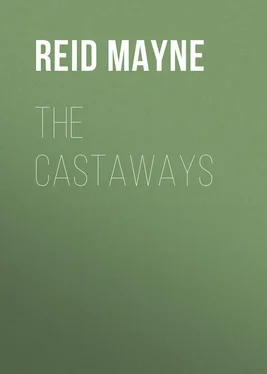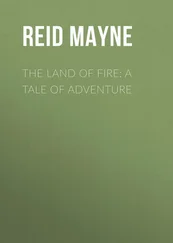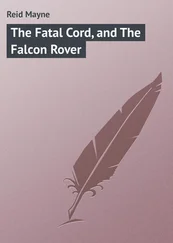Mayne Reid - The Castaways
Здесь есть возможность читать онлайн «Mayne Reid - The Castaways» — ознакомительный отрывок электронной книги совершенно бесплатно, а после прочтения отрывка купить полную версию. В некоторых случаях можно слушать аудио, скачать через торрент в формате fb2 и присутствует краткое содержание. Жанр: literature_19, foreign_antique, foreign_prose, на английском языке. Описание произведения, (предисловие) а так же отзывы посетителей доступны на портале библиотеки ЛибКат.
- Название:The Castaways
- Автор:
- Жанр:
- Год:неизвестен
- ISBN:нет данных
- Рейтинг книги:3 / 5. Голосов: 1
-
Избранное:Добавить в избранное
- Отзывы:
-
Ваша оценка:
- 60
- 1
- 2
- 3
- 4
- 5
The Castaways: краткое содержание, описание и аннотация
Предлагаем к чтению аннотацию, описание, краткое содержание или предисловие (зависит от того, что написал сам автор книги «The Castaways»). Если вы не нашли необходимую информацию о книге — напишите в комментариях, мы постараемся отыскать её.
The Castaways — читать онлайн ознакомительный отрывок
Ниже представлен текст книги, разбитый по страницам. Система сохранения места последней прочитанной страницы, позволяет с удобством читать онлайн бесплатно книгу «The Castaways», без необходимости каждый раз заново искать на чём Вы остановились. Поставьте закладку, и сможете в любой момент перейти на страницу, на которой закончили чтение.
Интервал:
Закладка:
“Sail, cappen – lookee talpolin!” said Saloo, speaking in “pigeon English,” and pointing to the tarpaulin in the bottom of the boat. “Why no him makee sail?”
“Yis, indade; why not?” questioned the Irishman.
“Comee, Multa! you help me; we step one oal – it makee mass – we lig him up little time.”
“All roight, Sloo,” responded Murtagh, leaning over and seizing one of the oars, while the Malay lifted the tarpaulin from where it lay folded up, and commenced shaking the creases out of it.
With the dexterity of a practised sailor, Murtagh soon had the oar upright, and its end “stepped,” between two ribs of the boat, and firmly lashed to one of the strong planks that served as seats. Assisted by the captain himself, the tarpaulin was bent on, and with a “sheet” attached to one corner rigged sail-fashion. In an instant it caught the stiff breeze, and bellied out; when the pinnace feeling the impulse, began to move rapidly through the water, leaving in her wake a stream of sparkling phosphorescence that looked like liquid fire.
They had no compass, and therefore could not tell the exact direction in which they were being carried. But a yellowish streak on the horizon, showing where the sun had set, was still lingering when the wind began to freshen, and as it was one of those steady, regular winds, that endure for hours without change, they could by this means guess at the direction – which was toward that part of the horizon where the yellowish spot had but lately faded out; in short, toward the west.
Westward from the place where the cyclone had struck the ship, lay the great island of Borneo. They knew it to be the nearest land, and for this had they been directing the boat’s course ever since their disaster. The tarpaulin now promised to bring them nearer to it in one night, than their oars had done with days of hopeless exertion.
It was a long twelve-hour night; for under the “Line” – and they were less than three degrees from it – the days and nights are equal. But throughout all its hours, the wind continued to blow steadily from the same quarter; and the spread tarpaulin, thick and strong, caught every puff of it acting admirably. It was, in fact, as much canvas as the pinnace could well have carried on such a rough sea-breeze, and served as a storm-try sail to run her before the wind.
Captain Redwood himself held charge of the tiller; and all were cheered with the fine speed they were making – their spirits rising in proportion to the distance passed over. Before daylight came to add to their cheerfulness, they must have made nearly a hundred miles; but ere the day broke, a sound fell upon their ears that caused a commotion among them – to all giving joy. It came swelling over the dark surface of the deep, louder than the rush of the water or the whistling of the wind. It resembled a human voice; and although like one speaking in agony, they heard it with joy. There was hope in the proximity of human beings, for though these might be in trouble like themselves, they could not be in so bad a state. They might be in danger from the storm; but they would be strong and healthy – not thirsting skeletons like the occupants of the pinnace.
“What do you think it is, captin?” asked the Irishman. “Moight it be some ship in disthriss?”
Before the captain could reply, the sound came a second time over the waters, with a prolonged wail, like the cry of a suffering sinner on his death-bed.
“The dugong !” exclaimed Saloo, this time recognising the melancholy note, so like to the voice of a human being.
“It is,” rejoined Captain Redwood. “It’s that, and nothing more.”
He said this in a despairing tone, for the dugong, which is the manatee , or sea-cow of the Eastern seas, could be of no service to them; on the contrary, its loud wailings spoke of danger – these being the sure precursors of a storm. 3 3 We are unwilling to interrupt the course of our narrative by disquisitions on subjects of natural history, and, therefore, relegate to a note the following particulars about the dugong. This strange mammal belongs to a genus of the family Manatidae , or Herbivorous Cetacea. The species of which a member was discovered by our castaways, is the Halicore Indicus , or dugong of the Indian Archipelago; and, as we have said, is never found very far from land. Its dentition resembles, in some respects, that of the elephant; and from the structure of its digestible organs it can eat only vegetable food; that is, the algae , or weeds, growing on submarine rocks in shallow water. When it comes to the surface to breathe, it utters a peculiar cry, like the lowing of a cow. Its length, when full-grown, is said to be twenty feet, but few individuals seem to exceed twelve feet. In its general appearance it is very much like the manatee , or manatus, which haunts the mouths of the great South American rivers.
To him and Murtagh, the presence of this strange cetaceous animal gave no relief; and, after hearing its call, they sank back to their seats, relapsing into the state of half despondency, half hopefulness, from which it had startled them.
Not so with Saloo, who better understood its habits. He knew they were amphibious, and that, where the dugong was found, land could not be a long way off. He said this, once more arousing his companions by his words to renewed expectancy.
The morning soon after broke, and they beheld boldly outlined against the fast-clearing sky the blue mountains of Borneo.
“Land!” was the cry that came simultaneously from their lips.
“Land – thank the Lord!” continued the American skipper, in a tone of pious gratitude; and as his pinnace, still obedient to the breeze and spread tarpaulin, forged on toward it, he once more knelt down in the bottom of the boat, caused his children to do the same, and offered up a prayer – a fervent thanksgiving to the God alike of land and sea, who was about to deliver him and his from the “dangers of the deep.”
Chapter Five.
Running the Breakers
The Almighty Hand that had thus far helped the castaways on their course, with a favouring wind bringing them in sight of Borneo’s isle, was not going to crush the sweet hopes thus raised by wrecking their boat upon its shores.
And yet for a time it seemed as if this were to be their fate. As they drew near enough to the land to distinguish its configuration, they saw a white line like a snow-wreath running between it and them, for miles to right and left, far as the eye could reach. They knew it to be a barrier of coral breakers, such as usually encircle the islands of the Indian seas – strong ramparts raised by tiny insect creatures, to guard these fair gardens of God against the assaults of an ocean that, although customarily calm, is at times aroused by the typhoon , until it rages around them with dark scowling waves, like battalions of demons.
On drawing near these reefs, Captain Redwood, with the eye of an experienced seaman, saw that while the wind kept up there was no chance for the pinnace to pass them; and to run head on to them would be simply to dash upon destruction. Sail was at once taken in, by letting go the sheet, and dropping the tarpaulin back into the bottom of the boat. The oar that had been set up as a mast was left standing, for there were five others lying idle in the pinnace; and with four of these, Saloo and Murtagh each taking a pair, the boat was manned, the captain himself keeping charge of the tiller. His object was not to approach the land, but to prevent being carried among the breakers, which, surging up snow-white, presented a perilous barrier to their advance.
To keep the boat from driving on the dangerous reef, was just as much as the oarsmen could accomplish. Weakened as they were, by long suffering and starvation, they had a tough struggle to hold the pinnace as it were in statu quo – all the tougher from the disproportion between such a heavy craft and the light oar-stroke of which her reduced and exhausted crew were capable.
Читать дальшеИнтервал:
Закладка:
Похожие книги на «The Castaways»
Представляем Вашему вниманию похожие книги на «The Castaways» списком для выбора. Мы отобрали схожую по названию и смыслу литературу в надежде предоставить читателям больше вариантов отыскать новые, интересные, ещё непрочитанные произведения.
Обсуждение, отзывы о книге «The Castaways» и просто собственные мнения читателей. Оставьте ваши комментарии, напишите, что Вы думаете о произведении, его смысле или главных героях. Укажите что конкретно понравилось, а что нет, и почему Вы так считаете.












